Atul Singh: Welcome to FO° Talks. With me is Thomas Greminger. He is the head of this Geneva Centre for Security Policy. He is one of Switzerland’s star diplomats. He is a scholar, a soldier and a man of the world. Welcome, Thomas.
Thomas Greminger: Thank you very much, Atul. Great to be with you again.
Atul Singh: Brilliant. So this is a brave new world we are living in. We are recording this on Monday, 17th of March, and in 2025, how do you see this brave new world in which we find ourselves in?
Thomas Greminger: It’s clearly a world that is spellbound by the new US administration — its announcements, its early actions. A new administration that has chosen a different path than classical diplomacy in the way they manage external relations. It’s a path of disruption, of provocation. Demands are not submitted to partners by arguments, but by that provocation or by building up a threat posture, and then one waits for a reaction and then decides either to withdraw or to maintain the threatening stance or to start negotiating. So I think it’s a totally different style. And of course, one of the big challenges is to figure out to what extent is an announcement here a threat, and to what extent, you know, is this a serious policy move? And I think that is currently what most of the world is caught up with — trying to figure out how to respond to these new approaches, disruptive, transactional approaches by the US government.
Atul Singh: I see. So, disruptive approaches of the US government. But it is not just a matter of style; it’s also a matter of substance. Out goes the post-World War II order, the US is talking of taking over Canada, Greenland, not to mention Panama. The EU is deemed anti-US. Suddenly, Russia is an ally — or maybe not an ally, but a potential friend — and Ukraine is run by a dictator. So there is a lot of change in substance, too, isn’t there?
Thomas Greminger: I think we still have to see to what extent there is really also a substantive change. In some ways, yes, we do see the imposition of tariffs — and not just, you know, threatening imposing tariffs. We do see concrete policy action. But a lot, for the time being, remains on a declaratory level. And I think that’s also one of the challenges — to figure out: are they serious? Is it not more than a threatening posture?
European security, NATO and strategic autonomy
Thomas Greminger: I mean, when it comes to one of my favorite topics — European security, the war in Ukraine — on the one hand, you have clearly a new impulse by President Trump. He clearly wants to achieve a ceasefire as soon as possible. But at the same time, I think we are still struggling with, well, what would then be a good deal for President Trump? I think this is still not really tangible. What would be a process that would take us to a ceasefire and perhaps later on to a settlement after conflict? I mean, what we’ve been seeing is a resumption of US–Russian dialogue. That is, as such, I think, positive. It’s good that these two major powers talk to each other again. How far they’ve come in this resumption of talks is a lot less certain. But then again, coming back to Ukraine — What is a good deal? What is a process? Who sits at the table? Who deals with it? On the US side, that’s also a big question mark. You know, initially, we all thought it would be General Kellogg. Now, it seems that he is rather sidelined, and it seems to be Mr. Witkoff who does the heavy lifting in that. But again, I think when it comes to real substance, we do not have a clear sense yet. You know, also: Are we really witnessing now a fundamental shift in alliances? Is it now the US and Russia against Europe? You know, I’m not so sure yet that this is what we are really witnessing. You can hear, of course, declarations that you could interpret in this way. But when it boils down to real policy changes, I think we’ll still have to be a bit more patient and see what is really happening then on the ground, if I may say so.
Atul Singh: Alright, so you’ve talked about what’s happening on the ground, which leads me on to my next question: What is actually happening on the ground? What are the key trends you observe in this brand new world?
Thomas Greminger: Well, clearly there is — I mean, allow me to remain — the new US administration. There is clearly this short-term transactionalism that dominates over long-term alliances. We see—
Atul Singh: That’s number one.
Thomas Greminger: I think we see that when it comes to European security, when it comes to the imposition of tariffs. I think there is significant evidence for this. A second trend that I perceive, again coming out of Washington, is not only a transactional but also a hard-power-based approach to foreign and security policy. And in a way, there seems to be an abandoning of US soft power politics. So, you know — I mean, basically eliminating development cooperation, dissolving USAID, cutting contributions to multilateral organizations — all this is very fundamentally undermining soft power protection of the United States. And perhaps, you know, a third point — but this, again, takes me back to the US–Russia relation — again, I think what is notable is that there is an attempt for a reset. There has been a resumption of dialogue, but we haven’t really seen the really tough issues being addressed. There seems to be a normalization of diplomatic relations — fine — but I haven’t seen, for instance, any strategic stability issues being addressed, even though this would be quite urgent, given, you know, New START running out next year. And also, when it comes to potential Russian demands like lifting of sanctions, etc — we haven’t really gotten a sense of how far the US government is willing to go here.
Switzerland’s neutrality under pressure
Atul Singh: Right. So, let’s move on to Switzerland, where you sit. And the US has put Switzerland on a list of non-friendly countries. What does this really mean?
Thomas Greminger: Well, first, you know, we need to be precise. Switzerland is not on a channel non-friendly countries list. I’m not even sure if this category exists. But we are on a list of countries with unfair trade practices. But, I mean—
Atul Singh: I stand corrected. I stand corrected.
Thomas Greminger: But, I mean, this is serious enough, and obviously this is taken very seriously by Switzerland. Why is this so? Well, Switzerland has a bilateral trade balance with the US with a very considerable surplus, by about $25 billion. And so I think that triggered, you know, this move to put us on that list. What, however, is not being said is that, at the same time, Switzerland has a deficit in services of around $20 billion. So, all in all, you know, if you count it all together, it doesn’t look that bad. But I think the important thing is that, you know, Switzerland is taking this seriously. The Swiss State Secretary for Economic Affairs is, as we speak, in Washington, is trying to figure out why. What are US expectations behind this move? And I would suppose, you know, she would argue with, you know, an extremely open space market. She would certainly point to the fact that we have this deficit when it comes to the service balance. And she would probably also point to the fact that Swiss multinational enterprises employ around 400,000 people in the United States. So I think there isn’t really an interest, you know, to trigger any sort of trade war between the two countries. What I like is, you know, that Switzerland is taking it seriously and is trying to address it through quiet diplomacy and not, you know, through this public diplomacy, not through loudspeaker diplomacy, but diplomatically.
Atul Singh: You’ve got an excellent ambassador, Ralph Heckman, in Washington, so that should help. And, of course, you’re huge investors in research and development. So the Swiss have invested quite a bit in the US and employs, you said, quite a few people — so that should help as well. So let’s talk about moving on from Switzerland to Europe. For decades, Europe and the US have been in a transatlantic alliance, and you just mentioned that the new fashion is transactional short-term gains, not long-term alliances. So are we to infer that this fabled transatlantic alliance is now dead?
Thomas Greminger: I don’t think so. Look, these strong transatlantic relations have been built over decades, and they’re simply too strong to be fundamentally questioned by one US president, by one US administration. I mean, I wouldn’t doubt that these relations are currently undergoing a serious test, and clearly there is a particular challenge to European partners who have to step up their contribution to counter military threats on their eastern flank. But, you know, even here, I would also see an opportunity. And that is this US pressure on transatlantic relations, in a way, also represents an opportunity to advance a more autonomous European security policy. And, you know, that takes us a bit also back to Trump’s first administration. I think already back then, this was the most significant boost to European strategic autonomy thinking. But obviously this was pre-war. Now we are in a war scenario, and the war clearly has again underlined how important these transatlantic relations are. So we are, in a way, in a different situation. But what we are currently seeing over the last days and weeks is a strong mobilization on the European side in terms of more security efforts — also, I think, a will to be more autonomous. And in that sense, you know, Trump may, at some point, even become a hero of European strategic autonomy.
Atul Singh: Excellent. But the alliance question: The alliance, you think, will persist? It’ll outlast Donald Trump?
Thomas Greminger: It will. It will. And, you know, I don’t think that, for instance, he would seriously consider pulling out of NATO. I think there is just too much at stake, not only from a pure security point of view. I think, you know, we need to be very clear. This has always also been an important way of assuring US interests in an absolutely fundamental market for the United States. It has been a way of projecting US power to the European continent. And I think abandoning all of that would — even if you think short-term, transactional — even in such a logic, this wouldn’t make sense.
Atul Singh: Alright. So let’s talk about what you’re saying repeatedly — transactional, transactional, transactional world we live in now. So, have we moved from a rules-based order to a transactional spheres of influence world?
Thomas Greminger: I think this is an excellent point. And indeed, if you look at the mindset of, let’s say, the presidents of the three major powers — the United States, China, the Russian Federation — I think you could make a case that they have a sphere of influence mindset, and that for them, you know, the respect for state sovereignty of neighboring countries and regions isn’t particularly strong. And I think these principles that heads of state have subscribed to over the last 50 years — that is, you know, that every state has the freedom to choose its own security arrangements, to be sovereign in its foreign policy choices — I think these are principles, values, that are not held very highly by all three of them. I mean, what is, of course, particularly surprising is that you would now also put the United States in that camp. But clearly, when you hear references to taking over Greenland, Canada, the Panama Canal, then I think this is a clear indication of a sphere of influence mindset. Scary.
Atul Singh: Yeah. I mean, so if that is the world we live in, is protectionism and hardball bargaining the new reality in this brave new world? And what does this mean for small countries like Switzerland?
Thomas Greminger: It’s clearly very challenging. If you cannot wield major power in a world that is dominated by power politics, you obviously have a major issue. And I think what it means for smaller countries like Switzerland is to be, you know, extremely attentive, smart, flexible, adaptive. Don’t put all your eggs in one single basket. You know, diversify your partnerships, diversify your supply chains. You know, try to avoid being too dependent on one of these major powers. A question that we keep discussing here in Switzerland is: Is neutrality still a tool, you know, that serves us well in this kind of world? And I would definitely argue yes. I think a smart neutrality policy — the reactive policy, you know, that shows that neutral Switzerland can be useful to the international community — is still a very appropriate way of dealing with these challenges.
Atul Singh: I see. So, some argue that this neutrality has weakened over time. After all, I mean, look at the Swiss moving towards the US in the Russia–Ukraine war. And of course, one could argue that neutrality might also be under pressure because of the financial pressure the US is exerting. Take the example of UBS. UBS got a lot of Swiss government support, but it’s threatening to move headquarters elsewhere. That might have been less likely if, perhaps, Switzerland was part of the EU.
Thomas Greminger: I mean, you are absolutely right. Being neutral these days is not, you know, an easy way of conducting your foreign and security policy. But then again, you know, what are the alternatives? The alternatives are: You join a camp, and you do what is called "bandwagoning" by political scientists. But then you’re caught in a camp; you’re bound by the decisions of such a camp. I don’t think that this is — in such a polarized world — always an advantage. And the other alternative is constant hedging. And I think that’s what you see with more major actors also in the Global South. That’s, I think, what Indians, for instance, call "multi-alignment," right? But I think for a smaller country like Switzerland, that has less power than, let’s say, India, Brazil, South Africa — I think neutrality brings along more predictability. But it’s not a rigid concept. And, you know, this takes me back to your initial question. Things have radically changed when it comes to Swiss neutrality policy once we came out of the Cold War. During the Cold War, Switzerland had a very rigid interpretation of neutrality — it was called "integral neutrality" — which basically meant, you know, no significant foreign policy. But then, you know, once we came out of the Cold War, Switzerland had to kind of reinvent its foreign policy and neutrality policy became much more open. And when you read the still-valid neutrality report of 1993, you see that, for instance, adopting economic sanctions is fully in line with the defined neutrality policy after the end of the Cold War. That this then creates dilemmas at given points in time is absolutely true. We had, in 2014, a big discussion in Switzerland: Should Switzerland adopt fully the imposed EU sanctions? In 2014, we decided no. We just, you know, make sure that Switzerland is not being used to circumvent sanctions. But we did not fully adopt them. And one of the key arguments was: Back then, Switzerland was in a mediating role as Chair of the Organization for Security and Cooperation in Europe. Now, when you compare that—
Atul Singh: Just for our viewers and listeners: They should know, 2014 is when Russia took over Crimea. So that’s what Thomas is referring to.
Thomas Greminger: Exactly. So we have basically two things: Illegal annexation of Crimea, and you have destabilization efforts in the Donbas. But you did not have — and that takes me to 2022 — you did not have a full-fledged aggression against a neighboring country, as in 2022. And given the severity of that breach of international law, given the fact that Switzerland had no particular role in 2022, given also, of course, the huge solidarity of the Swiss population with the aggressed state — with Ukraine — I think the Swiss government had no choice but to adopt these sanctions fully. Of course, this was criticized then by Russia. But I still think, you know, politically this made sense and is compatible with a modern interpretation of neutrality policy.
Defense, neutrality and the future of Europe
Atul Singh: Excellent. Speaking of neutrality, one would be remiss if one did not point out that Europe is rearming again. And Germany has exempted defense spending from its constitutional debt brake. Poland has talked about acquiring nuclear weapons. So, is NATO on the way out, and a new European defense alliance is about to take its place? Will it mean that some countries will take a more aggressive stance against Russia and others might just choose to be neutral?
Thomas Greminger: Well, I think the jury is still out of what form this will take. Will Europe focus on strengthening a European pillar of NATO? I think that is clearly an option. Or would it go for investing mainly in strengthening the security side of the European Union? Or, thirdly, would it be a construct that is different to NATO and EU, which would have the advantage of also integrating non-EU and non-NATO members? The European Political Community, you know, has been mentioned. But obviously, the downside is there are no established security structures, mechanisms, etc. So I think it’s still open how this part of the European security architecture will look like. I think what is clear is you will see a much more significant European effort in that — less reliance on US support. This obviously also implies that Europe will have to compensate for currently still existing important capability gaps. I think they will have to be made up. It also implies that Europe will have to cooperate in security matters to a much different way. You know, let’s be honest — I think right now, security in Europe is still very much nationally driven. Procurement is nationally driven. And I think this needs to change. You know, you cannot have twelve different tank models in the future of European security. I think you will have to focus on two or three, right? So it’s not about moving military expenditures up to 5%. I think that’s simply not necessary. What is necessary is change the cooperation mindset when it comes to defense and security in Europe. And I think there is still quite a bit to be done. But clearly, what I’ve been seeing over recent weeks and months shows me that I think Europeans have understood and they got the message, and they are now working on it.
Atul Singh: So, you say Europeans have got the message and they are now working on it. Does that mean that the Europeans are not going to buy US weapons as much anymore? Because you said you need two or three tanks — one of them, of course, is Challenger in Europe — and a key reason to buy US arms has been interoperability. But if the Europeans cannot rely on the US as much as they used to, then they’ll have to build their own weapons systems. And there is already talk of the fear of the kill switch or the US not giving you software updates as part of a trade war, even. So, it is not just increased spending — it is developing a homegrown defense technology, research and development — almost a military-industrial complex, isn’t it?
Thomas Greminger: It’s true. I think a lot will depend on how this is now being managed on both sides of the Atlantic. I think if it’s smartly managed, I would see European security being strengthened, transatlantic relations even being strengthened. If it’s poorly managed — if this threat posture remains the dominant feature of US policies — indeed, I think you’re absolutely right that one of the consequences could indeed be that Europeans buy less and less American weaponry and, you know, will basically then resort to European systems only. Which probably wouldn’t be smart from a military, from a security point of view, either. But okay — I mean, if there is bullying from Washington, Europe might not have another choice than to do that. But again, I hope this is not the scenario that we are going to see. I hope, you know, reason sets in and complementarity will remain an important principle in European security. Bear in mind that Europe will have to step up its own investment, its own effort.
Atul Singh: Thomas, most European countries have very generous social welfare systems — generous especially when compared to the US With rising defense spending, can Europe manage both guns and butter? And what is the future, then, of the European economy?
Thomas Greminger: Yeah, again, I think that’s an excellent question. This guns-and-butter dilemma I think is a real dilemma. And there is obviously a threat of crowding out social expenditures if defense expenditures will have to be kept on a very high level for a very long time. And there is also a risk of inflationary pressure, you know, if this defense spending has to be kept high for a long time. So I think it all depends on the timeframes that we are talking about. And this, of course, then takes us to developments in Europe over the next few years. Will we see an end to the war in Ukraine? Will we gradually come back to a European security order that contains cooperative elements? Or will we stick, for decades to come, in a kind of new Cold War with enormous defense expenditures on both sides? I think if the latter is the case, then indeed, you know, this guns-and-butter dilemma will become much more critical. If the former happens, we may at some point in time again see the peace dividend, you know, that will allow us to sustain social expenditures and also deal with all the challenges of an aging population, for instance, of rising health expenditures, etc.
A new Cold War?
Atul Singh: So you’ve mentioned a new Cold War, and I couldn’t help thinking: What will be the shape of this new Cold War? Let’s hope it never gets that far. Let’s hope we have a peace dividend. But in case we don’t, will this Cold War be between the US and the EU? Will it be between the EU and Russia? Will it even be between the EU and China? Because there are lots of tensions, strained tensions, and Xi Jinping has not deigned to visit Europe. So what will be the shape of this new Cold War?
Thomas Greminger: Yeah, again, I think the jury is still out. Well, until a few months ago, one would have said, well, it’s probably the West against the rest, or against China and Russia. Now, with this attempt to reset US–Russia relations and this declared strategy of President Trump to kind of, you know, pull Russia out of China’s embrace, we may see different developments. And then, of course, a lot will also depend on how, for instance, Europe will position itself. Will Europe try to kind of remain and keep an independent stance, or will it side exclusively with the US? You know, when you look at the relevance of economic relations between China and Europe, I don’t think that this would be a very favorable strategy for both China and Europe. And I get clearly a sense that China is trying very hard to reach out to Europe. This may not be reflected in heads-of-state visits lately, but diplomatically, what I perceive is a strong outreach by the Chinese. And I think they would want to deal with a Europe that is as independent as possible.
Atul Singh: Excellent. Thomas Greminger, thank you so, so much for your time. It’s always a pleasure to have you with us. We hope you’ll come back soon. There’s lots to discuss in this brand new world, in this fast-changing world. And we wish you all the best with all your endeavors.
Thomas Greminger: Thank you very much, Atul. Thank you for inviting me.
[Lee Thompson-Kolar edited this piece.]
The views expressed in this article/video are the author’s own and do not necessarily reflect Fair Observer’s editorial policy.








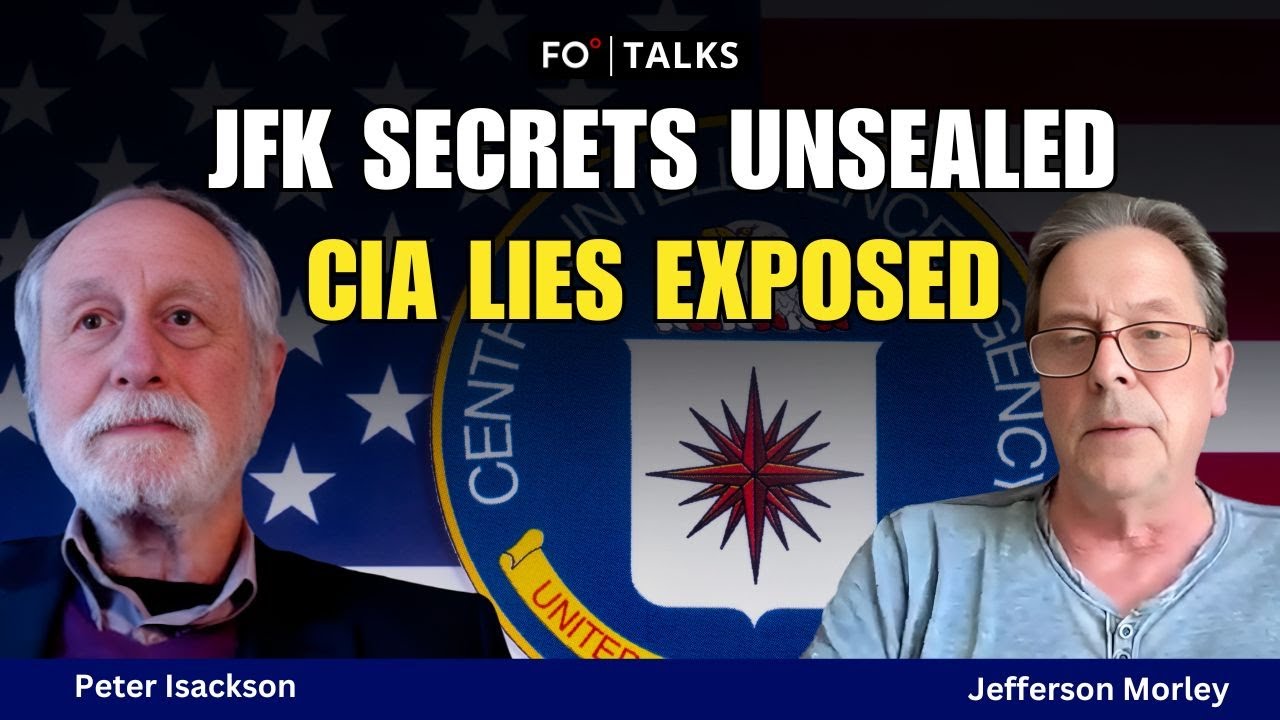





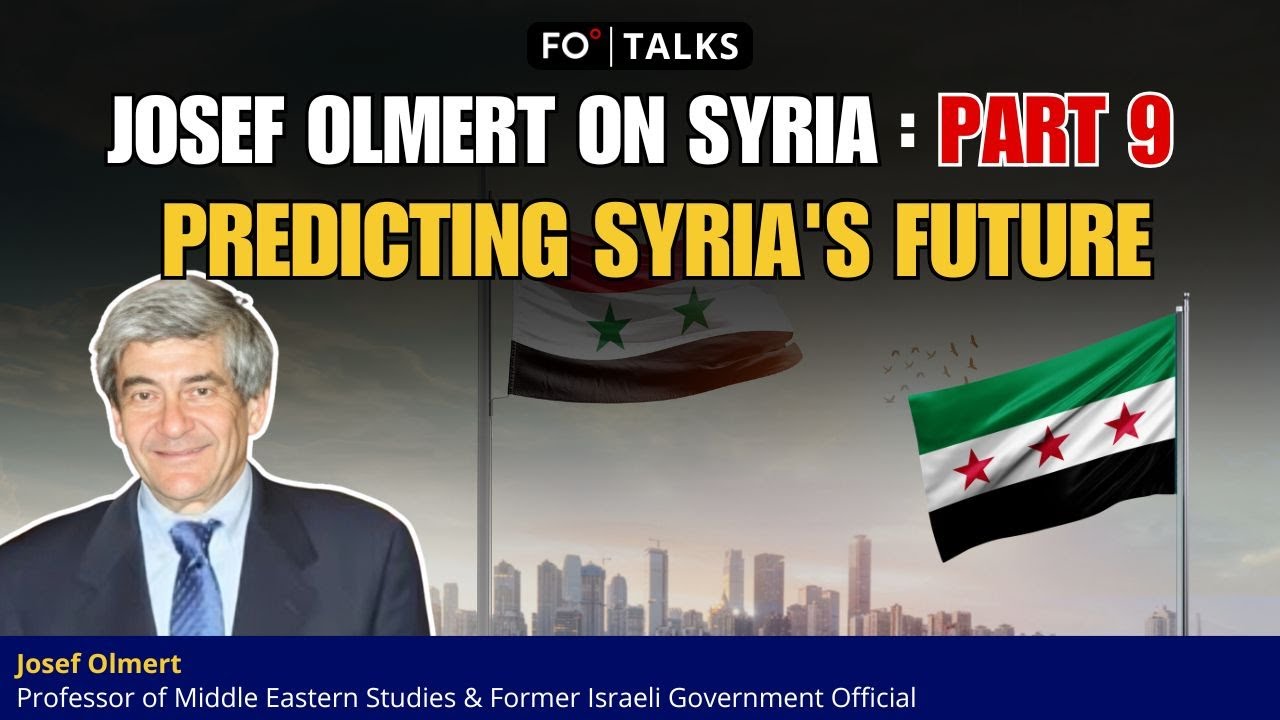



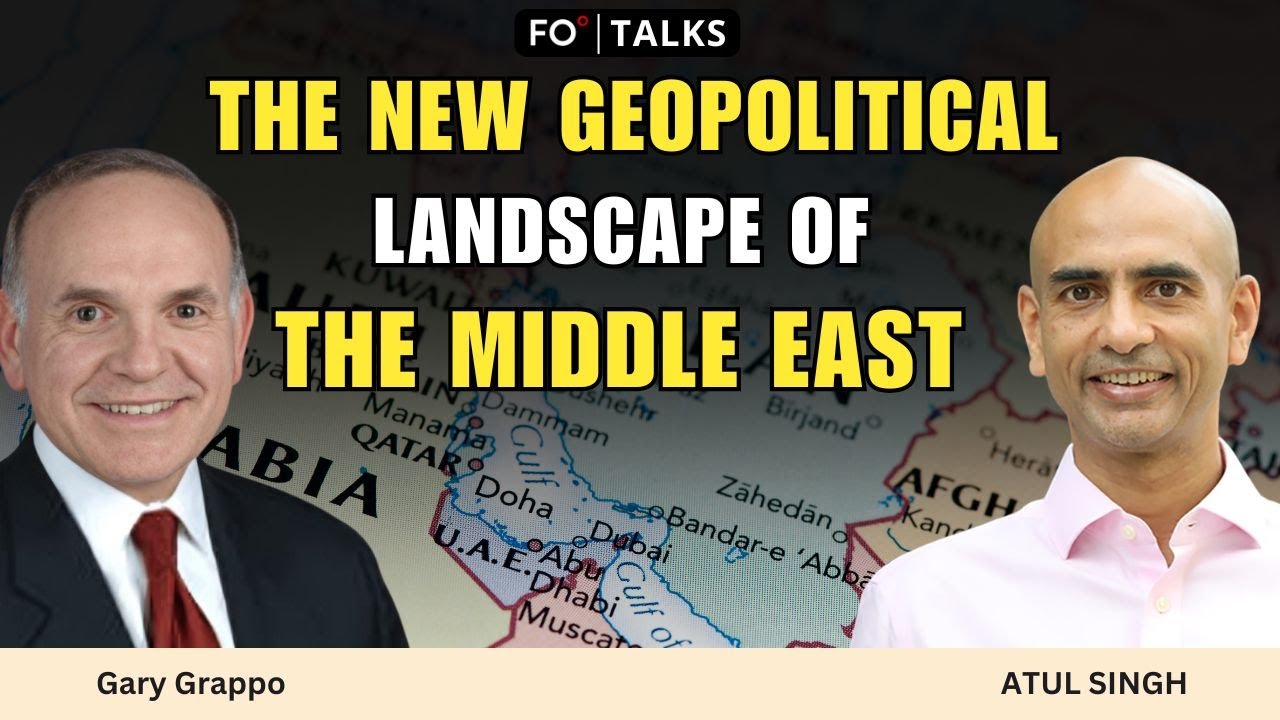




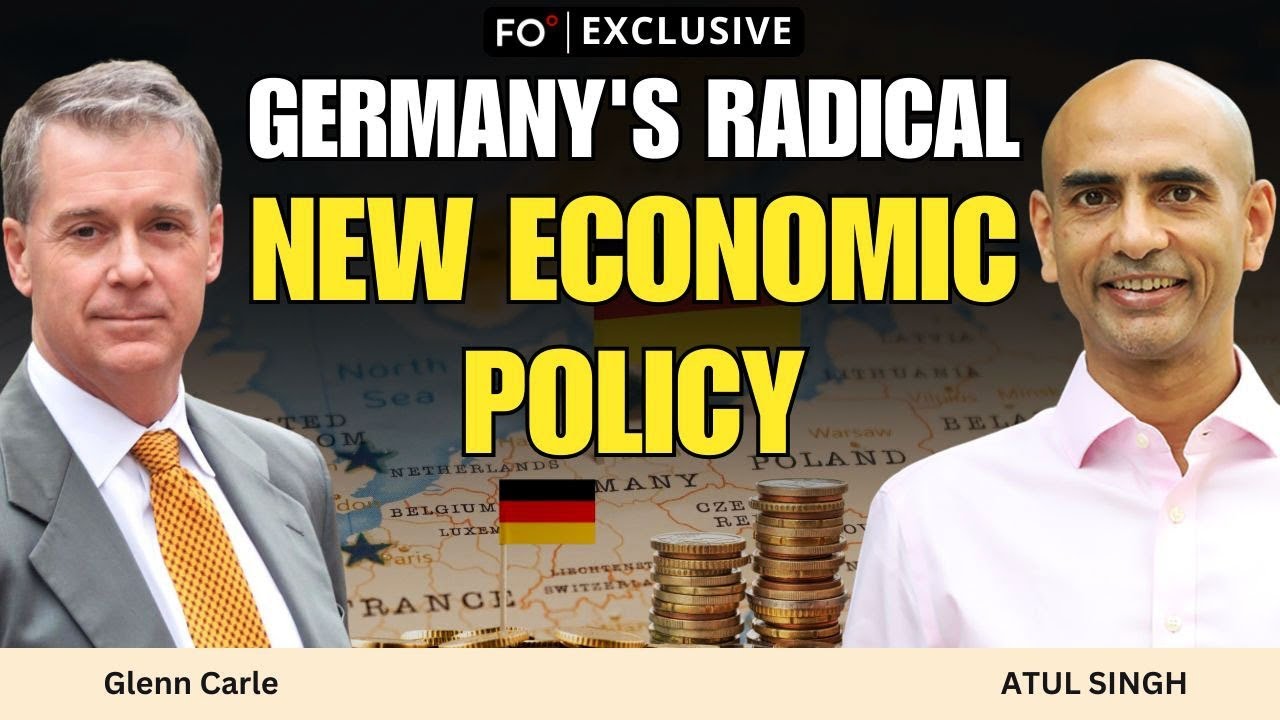
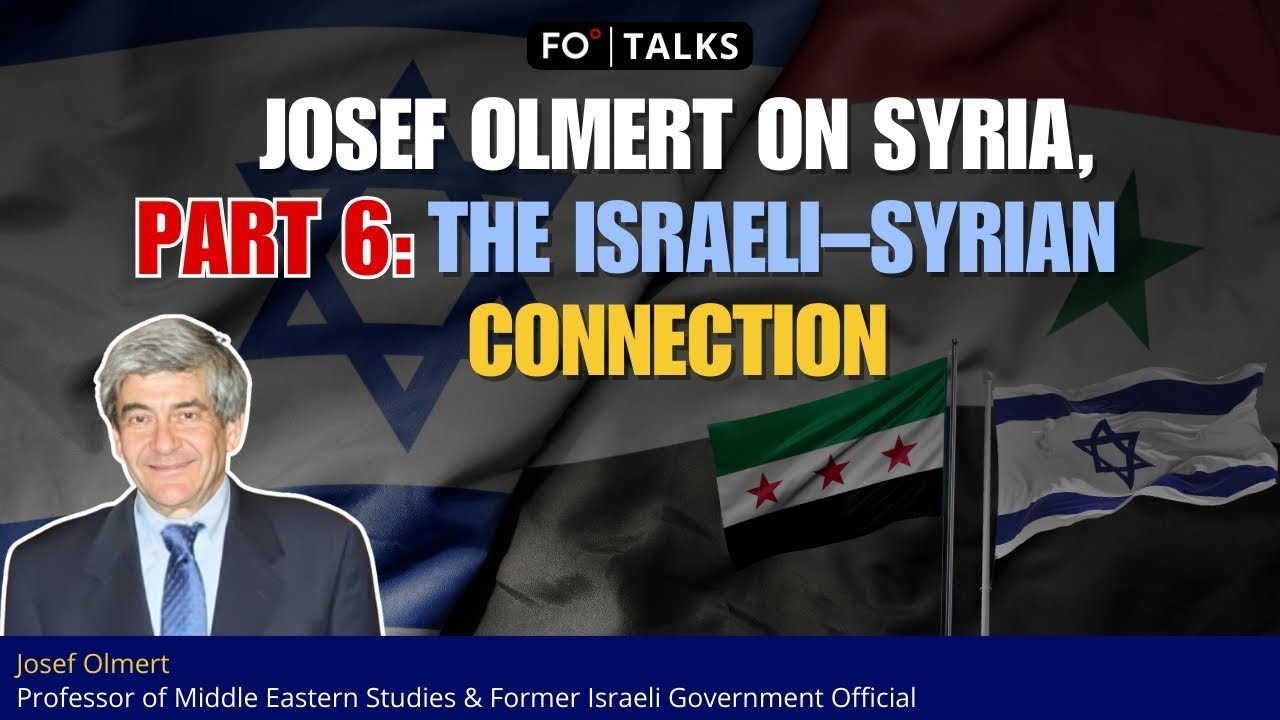
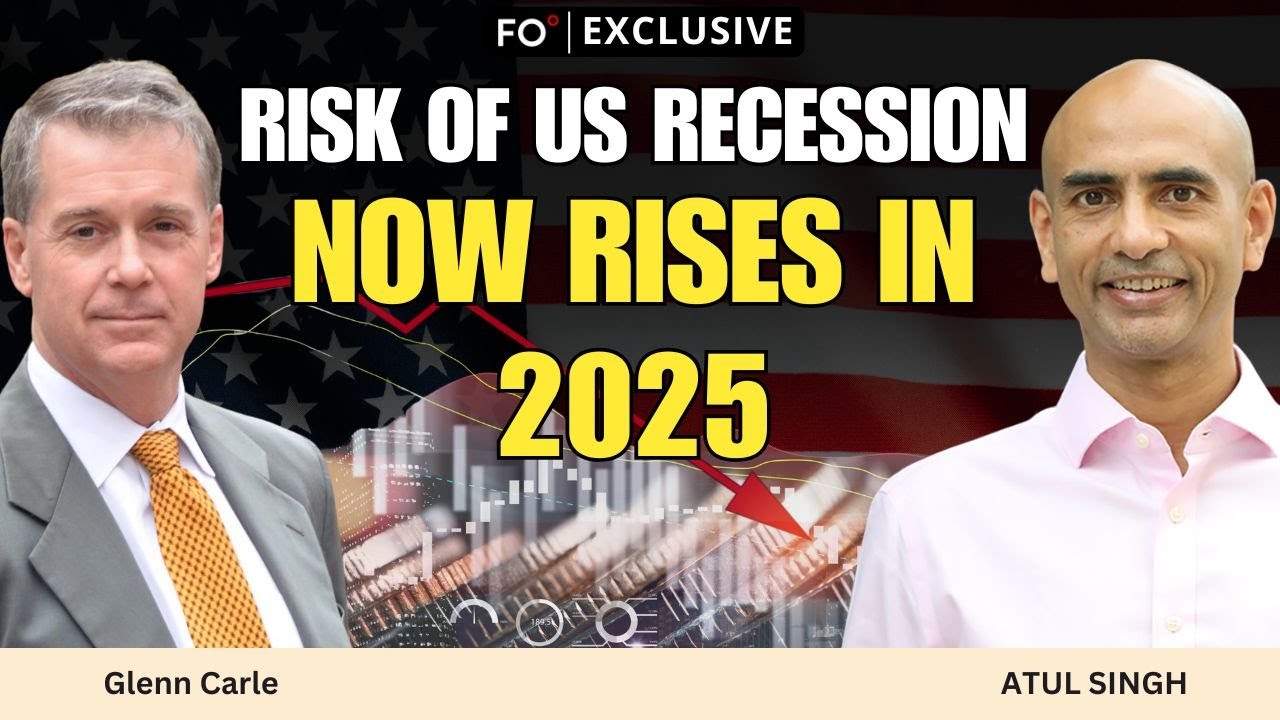


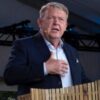
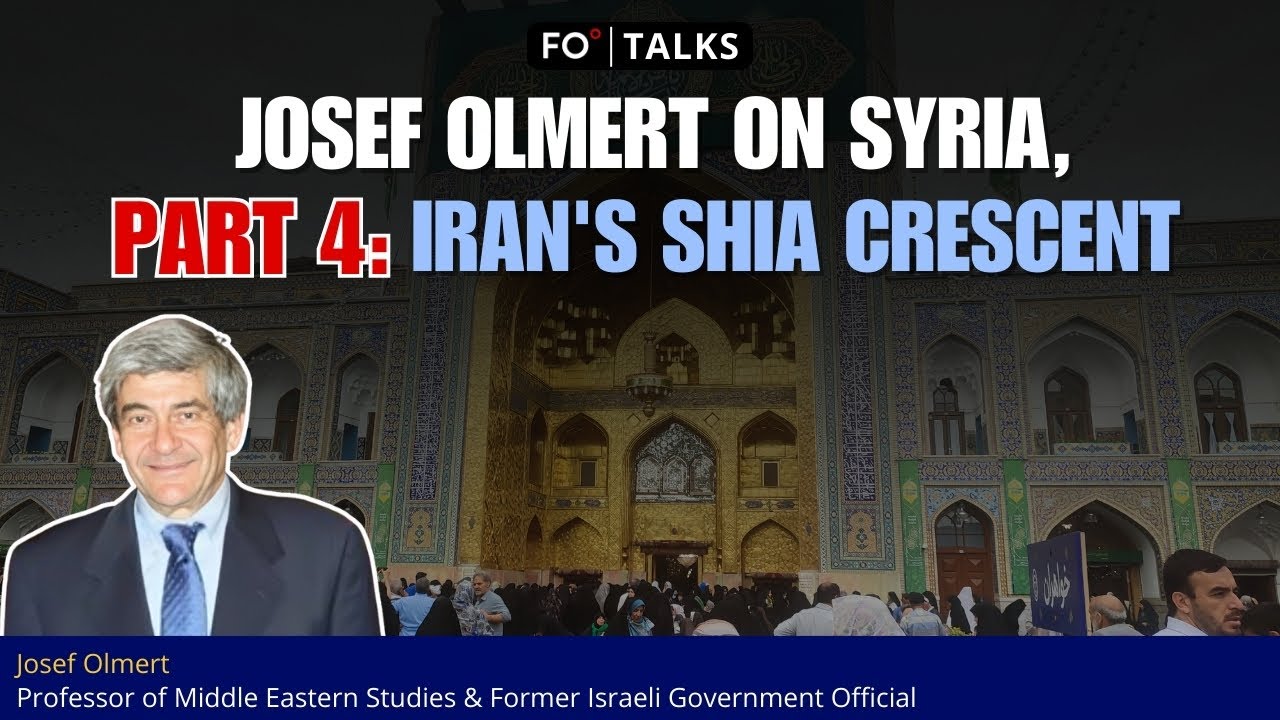

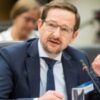






Comment